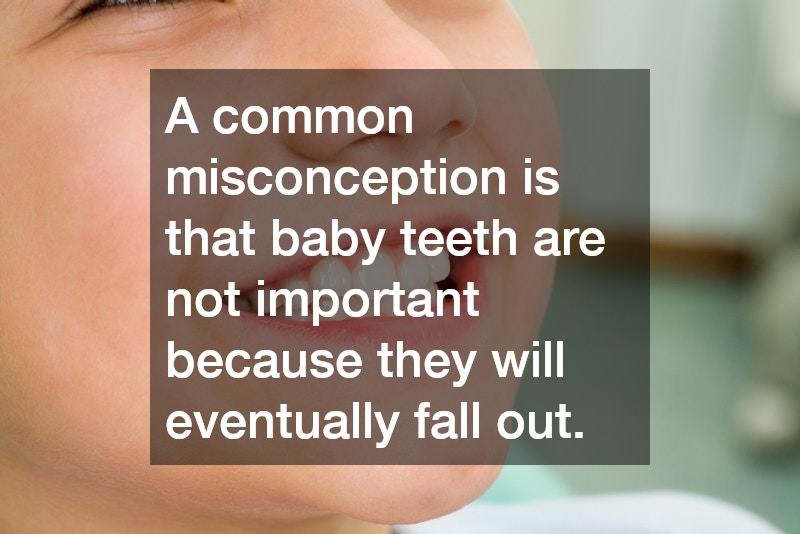The Importance of Infant Dentistry in Developing Healthy Smiles
Establishing good oral health habits during infancy is one of the most important steps in ensuring a lifetime of healthy smiles. Infant dentistry focuses on preventive care, education, and early detection of potential dental problems before they develop into larger concerns. By introducing dental care early and involving caregivers in daily routines, parents can help their children develop strong, healthy teeth and gums from the very beginning.
When Should Dental Care Begin for Infants?
Establishing Early Dental Visits
Dental care should begin as soon as an infant’s first tooth appears or by their first birthday, whichever comes first. Early visits allow the dentist to examine the child’s developing teeth and gums, identify potential problems, and provide guidance on proper cleaning techniques. These appointments also help children become familiar with the dental environment, reducing anxiety about future visits.
The Role of Caregivers in Early Oral Health
Parents and caregivers play a crucial role in maintaining an infant’s oral hygiene. Even before teeth erupt, wiping the gums with a clean, damp cloth after feedings helps remove bacteria and keeps the mouth clean. Once teeth appear, caregivers should begin gentle brushing with a soft-bristled toothbrush and a smear of fluoride toothpaste. Establishing these routines early encourages healthy habits and reduces the risk of cavities later on.
Identifying Early Signs of Dental Issues
Recognizing early signs of dental problems is vital to maintaining an infant’s oral health. Discoloration, white spots on the teeth, persistent bad breath, or swelling of the gums may indicate the beginning of tooth decay or infection. Early detection allows for prompt treatment and can prevent more serious dental issues from developing.
What Are the Top Concerns for Infant Oral Health?
Preventing Baby Bottle Tooth Decay
Baby bottle tooth decay occurs when sugary liquids such as milk or juice remain on a child’s teeth for extended periods. This condition often affects the upper front teeth and can lead to pain, infection, or tooth loss. To prevent it, parents should avoid letting babies fall asleep with bottles, clean the mouth after feedings, and introduce cups as the child grows.
The Importance of Teething and Oral Development
Teething is a natural part of oral development that typically begins around six months of age. While it can cause discomfort and irritability, it also marks the emergence of primary teeth that guide the alignment of permanent ones. Providing teething toys, gently massaging the gums, and maintaining good hygiene during this period can help manage discomfort while supporting healthy growth.
Nutritional Impact on Infant Dental Health
Nutrition plays a major role in early dental development. A balanced diet rich in calcium, phosphorus, and vitamins supports strong teeth and gums. Limiting sugary snacks and beverages helps prevent decay, while breast milk or formula provides essential nutrients for early tooth formation. Encouraging healthy eating habits from the start lays the groundwork for a lifetime of good oral health.
How Does Infant Dentistry Contribute to Long-term Oral Health?
Building a Foundation for Lifelong Habits
Positive dental experiences during infancy shape a child’s attitude toward oral care. Regular visits help children feel comfortable with their dentist and encourage consistent hygiene practices at home. By instilling these habits early, parents can significantly reduce the likelihood of dental anxiety and poor oral hygiene in the future.
Preventive Care and Its Long-term Benefits
Preventive care is the cornerstone of infant dentistry. Early checkups allow dentists to monitor growth, apply fluoride treatments, and provide sealants when appropriate. These measures protect against decay and promote healthy development. Preventive strategies established in childhood often lead to fewer dental issues and lower treatment costs later in life.
Addressing Misconceptions About Infant Dental Care
A common misconception is that baby teeth are not important because they will eventually fall out. In reality, healthy baby teeth are essential for speech development, proper chewing, and guiding permanent teeth into place. Another myth is that dental care is unnecessary until multiple teeth have appeared. Early care ensures proper monitoring and prevents problems that may otherwise go unnoticed.
Infant dentistry plays a vital role in promoting healthy smiles and establishing a foundation for lifelong oral health. Early dental visits, proper hygiene practices, and preventive care all contribute to a child’s overall well-being. By prioritizing early dental care, parents can help their children develop strong teeth, healthy habits, and the confidence to maintain their smiles for life.




